Parched Read online
Page 3
“We don’t live in these houses. But those are our crops.”
The man with the bat said, “These aren’t vegetables.”
If they didn’t know what the amaranth was, she wasn’t going to explain it to them. “Not all crops are food crops,” is what she said, feeling a twinge of guilt about lying and, immediately on its heels, amusement that she still gave a damn about lying to people anymore. She’d done far worse. “Look, wherever you came from, wherever you’re going, you need to move on.”
The man with the bat said, “No.”
“We have guns,” Sierra said. “But I truly don’t want to use them. There has been enough killing, don’t you agree?”
A second woman who had been silent until now said, “My wife is going to have a baby.”
Someone in their group hissed, as if to silence her.
“My name is Sierra,” Sierra said again. “And yours?”
After a guilty glance around, the woman mumbled, “Becca.”
“And your wife? Where’s she?”
“In a bedroom. She’s been bleeding and—”
“Becca,” the man with the club said in a sharp voice.
Sierra ignored him and spoke to the woman. “We have a healer, a former EMT. Do you have anyone medical in your group?”
“We can’t pay you,” the first woman said. “We have almost nothing.” The plea in her voice was clear. She wanted help for the pregnant woman.
Sierra felt sympathy for them, though she didn’t want to. She tried to imagine what their lives might have been like these past ten years. There was a wagon, but no horse or donkey was in evidence—and had there been one, they might have eaten it years ago. They’d been pulling it themselves, it seemed, and for how long? Had they always been nomads? Chased out of a community? Been burned out like the people who once lived here? Had changes in the climate forced them to move? That could have easily been her—and that’s what stirred her sympathy and made her say something other than, “Get the hell off our land.”
“I tell you what,” she said. “We’ll do what we set out to do—harvest the crop here—and then look at your pregnant person.”
“Your medical man is close by?” The slingshot man.
“Close enough,” Sierra said. “I’ll talk with my people and be right back.” She didn’t turn her back on them—the guy with the slingshot was probably pretty good with it, if that was the only hunting weapon they owned, for they’d survived. She backed up until the car was between her and them. She leaned in the driver’s side window and said, “Did you hear that?”
Joan said, “Most of it—except what the smaller woman said. Her voice was too soft.”
“There’s another woman inside—her wife, pregnant and spotting, it sounds like.”
“What month?”
“We didn’t get that far. So as it stands, they didn’t object to our harvesting the crop and then Kelly taking a look at the woman. What do you all think? Do we make this a fight? Or do we do what we came here to do? And maybe help them, and try to do a kindness for a sick person?”
Emily was slouched down, looking terrified. Strange men still upset her.
Joan said, “I don’t know. Emily, you going to be okay with going out there to harvest?”
Emily nodded, but it didn’t look very convincing.
Kelly said, “I’d feel better if one of us held the gun and protected the others while we harvested. Emily, are you up to that? Harvesting if I or Sierra is armed?”
Emily nodded again. She mimed plucking plants up, though that’s not how they harvested the amaranth.
“Okay,” Kelly said. “I guess I’ll stand guard, unless you’d rather, Sierra.”
“It’s your gun,” Sierra said. Truth be told, she didn’t want to have to be the one to shoot someone if one of the strangers made a move. “I hope they don’t have a firearm hidden away.”
Joan said, “They’d have shown it first thing if they had, trying to scare us off. They weren’t shy about showing the bat.”
Sierra said, “Okay, let’s harvest then, the three of us. Emily, you carry the sacks. I’ll get the scythes.”
They had brought four tools to harvest with—one was a store-bought scythe from their garden supplies, a serrated tool with a flat blade probably meant for chopping weeds. The other scythe, Curt had fashioned from his collection of scrap metal. One side of each was sharpened every month, and they’d serve as defensive weapons if this went badly today. There were also two sets of garden sheers for cutting off the seed-rich grain heads of the plants, tools manufactured back in the old days when hardware stores had racks of such things for sale.
She popped open the small trunk and they collected their gear. “Stick together,” she muttered, as they readied themselves to move to the field.
They circled around the group of five people, everyone watching the others in fear and caution, and headed for the biggest fields, where the burned houses had been. The amaranth was undisturbed by the interlopers. The variety that had survived the drought turned a red color when ripe. The plants were head-high in wetter years, only chest-high this dry year. The grain heads were sparer than in good rain years, but they were developing as they should. The farthest field was ripest, bright pink. The middle third was just coming into ripeness, the pink only a hint of color. The third nearest them wasn’t ready for harvest.
“If we can’t drive them off, I’m thinking we should harvest this middle portion too,” Kelly said. “Before they tear through it.”
“We can drive them off,” Joan said. “The question is, should we?”
“What do you mean?” Kelly said.
“It wouldn’t hurt to have neighbors this close.”
“It would hurt a lot to give up the grain fields,” Sierra said. The hens relied on the grain to supplement their foraging and the few food scraps they got, and the grain was the humans’ only source of bread. It provided a good portion of their daily calories.
“That doesn’t have to happen,” Joan said. “We can work out something.”
“Of course it does,” Kelly said. “If they stayed, they’d eat it or need the land for their own food crops. Which I guess you’re suggesting we also give them seed for? We’re on the verge as it is, what with all this hot weather.”
“I don’t know,” Joan said. “I was thinking aloud. And I was hoping the killing was behind us, to tell you the truth.”
“Be careful with this ripe stuff,” Kelly said, pointing to a fat head of grain. “It’s going to want to fall off. I’d use the clippers on these, and put the sack under to catch what falls.”
“We’ll be careful,” Sierra said. “You keep an eye on those strangers, okay?”
“Will do,” Kelly said. She checked her revolver, and then stationed herself at the edge of the field, not hiding the weapon from the strangers.
When the strangers made no move, Sierra started the harvest. They worked in silence for a time, focusing on harvesting the precious seeds without dropping too many. Emily took the job of keeping the burlap sacks spread out below the seed heads, trying to catch most of what fell.
Joan said, after she had toppled some seeds from merely brushing against a plant, “We should have been here two days ago.”
“The center field will be a faster job to harvest,” Sierra said. “Just scythe the plants, hang them in the barn over a tarp, and flail them in a few days more.”
“What do you think about these people?”
“I don’t know. But I do know that I believed I was done with killing.” She’d never told anyone but her father about her accidentally killing an ally, first because of her promise to him, and later because it seemed like ancient news, inappropriate to bring up. But that experience had changed her, turned her from a young, enthusiastic warrior who liked strategy and tactics and who enjoyed killing an enemy, into someone who wanted to kill no one. Even killing the hens that had quit laying was painful for her now.
“We probably wouldn’t
have to kill them. They don’t look like they have much. Their clothes are tattered.” She looked down at herself. “Though I should talk.”
“We have a lot of animal skins stored.” The barrels at the Quinns’ that had once held sugar and flour and hundreds of pounds of rice now held those, or at least the ones that they’d successfully tanned. That had taken some experimenting to get right. One day, they’d all be wearing those instead of woven cloth. “But these people,” she said, getting back to the topic, “you seem interested in having them stay.”
“No offense intended, but I believe we could do with new friends. I love the ones I have, but Rodney and Misha….” She trailed off.
“You’re thinking of them finding mates?” The word sounded odd, but no odder than the other phrase that came to mind, which was “someone to breed with.” She didn’t say that one aloud.
“Friends, at least. One fellow was pretty young. Maybe young enough for Misha.”
“I don’t think age matters that much any more.” Not when your choices of mates and friends both were down to a few. “We don’t know what kind of people they are.”
Emily nodded hard at that.
Joan smiled at her eldest daughter, but it was a sad smile, Sierra thought. “You don’t have to make friends if you don’t want to,” she said to Emily.
It would be hard for Emily to make new friends, not having words to do it with. But Sierra knew from her expression it wasn’t something she wanted to do. She had her neighbors, and though it had taken a good year after her rape at the hands of the Payson invaders, she’d finally grown to trust the men she knew. Back when Wes’s neighborhood still sent young people up for a week’s stay and exchange of skills, she’d hidden from them. Emily’s world had shrunk to ten people other than herself, and it seemed to be enough for her.
“They’re probably all paired off,” Sierra said, thinking it through.
“I’m not sure monogamy is really a thing any more.”
“Are you anxious for Misha to have children? Rod?”
“You had a child,” Joan said.
Not on purpose. Zoe wasn’t planned. She was loved, and welcomed, but Sierra still wondered if it had been a cruel choice on her part to bring a new person into a life that was sure to only get harder and harder. If a disease ravaged their hens, or a swarm of locusts destroyed their gardens, or if the heat got any worse, Zoe’s life might be very short indeed. The thought caused a stabbing pain in Sierra’s heart. “I love her,” she said, “but I worry about her.”
“That’s what mothers do,” Joan said, her eyes drifting to Emily.
“Hold that one back, would you?” Sierra said, as she held the stem of a fat head of grain and clipped beneath it. Emily positioned the sack just under it, and Sierra managed the transfer without dropping a single seed. “Ha, we got that one.”
Joan said, “Those three houses are just sitting there, going to waste.”
“Probably leaking and rotting by now without people caring for them.” They’d taken everything of value from the houses after a little more than a year had passed without their owners returning. Solar panels, cables, batteries, and tools at first. Later, clothes and old towels and sheets that had been left behind to supplement their own things. She was wearing one of those sheets now, sewn into a light cotton shirt for her by Joan. By this point, there was almost nothing left in the three houses but bare furniture and some kitchen supplies, and Sierra hadn’t been inside the houses for years.
“Then we don’t care if they use them, right?”
“I guess not. The issue isn’t the houses, which they could have, as far as I’m concerned. It’s the food.”
“You know, we could switch the amaranth fields up to our place. Clear some land up there.”
“Lot of work,” Sierra said.
“I know. And we’d burn calories doing that work. But so many trees are dead now. We can chop them down, store the firewood on the road, and plant there.”
“I’ve taken out a couple of stumps to expand our garden,” Sierra said. “It’s hard work. Particularly without gasoline to run chainsaws or a winch.”
“We have the come-along.”
“A lot of work,” Sierra repeated.
“Maybe we can take down the trees and plant grain between the stumps. Do they have to come out?”
Sierra didn’t know. “Don’t stumps still take up nutrients?”
“Or give them, as they rot?”
“I don’t know. Emily?” Sierra said, including the young woman out of habit.
Emily shrugged. Only thirteen when all this happened, she’d not had time to learn a lot about practical living skills before the end of civilization, and as they lived in town, her knowledge of farming would have been absent in any case. Since then, she’d learned to garden, sew, tend hens, and clean small animals from their traps. She oiled their family’s rebuilt turbine and serviced the single Tesla fuel cell the house had instead of batteries. Emily was as competent as any of them.
She took off her straw hat and waved it at her face. Her hair had darkened into a light brown since childhood, with reddish highlights at the crown where the sun hit it. Her features were fine and regular, with a mouth that seldom transformed into a smile. A crease between her eyebrows revealed her worry. “It’ll be okay, Emily,” Sierra said.
Emily glanced up at her and did a thing with her eyebrows that said, “We’ll see.” It was amazing how clearly she made herself understood without words. Sometimes, especially when it came to Dev and Zoe, Sierra couldn’t make herself understood with ten thousand words.
“They don’t have any young children,” Sierra said.
“Not that we’ve seen,” Joan said. “They could be hiding them.”
“Good point. And there seems to be one on the way, though I’m a bit confused.”
“About what?”
“The woman called her ‘my wife,’ so they’re married lesbians, it seems. And unless I missed something in health class, that can’t result in pregnancy.”
The expression on Emily’s face made her regret she’d said anything. The pregnancy might have been by choice—but yeah, it could well have been rape that resulted in it. Emily would never forget the violence that had been perpetrated on her. Her silence still spoke of it. “Maybe that’s why they left wherever they were.”
“I’m sure they have a story. I’d like to hear it. Maybe there’s news of the outside world.”
They worked in silence for a time, and then Sierra had a thought. “Maybe it’s time to go down to Wes’s and see what’s up.”
“How long has it been?”
“Almost a year. I’m not looking forward to the bike ride up.”
“I hate for you to go alone. Who knows what you’ll encounter? Maybe we should take the car.”
They had decided not to risk that any longer. If the electric car broke down far from home, they’d never get it back. It was important to carry the grain harvest. “No. It’s not that important.”
“Maybe this group has news of our old friends. Or of Payson. Another good reason to talk to them.”
“They aren’t anyone you recognize? I didn’t.”
“No. They’re not from Payson, I think. Though who knows? It’s been so long since we’ve had contact with them, a whole new group could have moved in there.”
“Or everyone could have died.”
“If that sickness from five years ago went through town a second time—or another sickness—that’s not impossible.” Joan sighed. “I’m glad I moved the family up here, but sometimes I still feel guilty that I have it better than they did.”
“You couldn’t have done anything about the sickness. Kelly couldn’t.”
“Kelly couldn’t what?” Kelly said, moving closer.
“Save Payson. From whatever the disease was.”
“That’s true enough. Whatever it was, it was viral. Even if I’d stocked up on antivirals before the crash, I couldn’t have treated everyone in tow
n.”
“Speaking of which, we should be careful about close contact with these people,” Joan said. “They could be carrying something with them other than bats and sticks. An infection. Kelly, are you really going to take a look at that pregnant woman?”
They all glanced over at the group of strangers. The wife of the pregnant woman had gone inside, but the others were all standing there.
“There’s someone else inside, watching,” Kelly said softly. “A boy about thirteen, I’d say. From a window.”
“There might be more,” Sierra said, and she felt real fear at the thought. She realized she’d lost her battle readiness—years ago, in fact. There might be two dozen of these people, half of them circling around to take her group in some surprise attack. And they might have weapons they hadn’t shown. Her heart raced like in the old times, but there was none of the excitement she used to feel before a battle. Just dread.
“That’s not what they’re acting like,” Kelly said. “They’re acting frightened, tired, defensive. Ready to fight, but not hopeful they’ll win.”
“I’d rather not fight them.”
“We have to defend our fields. You know what Arch will say.”
“As clearly as if he were standing right here,” Sierra said. “We’ve had this discussion before.”
“Not in many months,” Joan said. “And the only agreement we came to is that we’d defend our own land to the death.”
“This is our land,” Kelly said.
“Not really,” Joan said. “What if this group is related to one of the people who used to live here? Maybe that’s one of the things they’ll tell us if we listen to them.” She clipped one of the last ripe seed heads and put it into the sack that Emily held.
Emily was paying attention to every word said.
“Unlikely. And if they were,” Kelly said, “they’d have mentioned it first thing.”
“So your position is, this is our land, and we should kill to defend it.”
“No, that’s Arch’s position. I’m reasonably sure I can speak for my husband.”

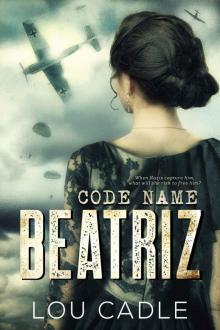 Code Name- Beatriz
Code Name- Beatriz Oil Apocalypse Collection
Oil Apocalypse Collection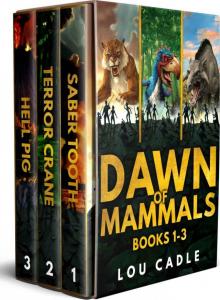 A Dawn of Mammals Collection
A Dawn of Mammals Collection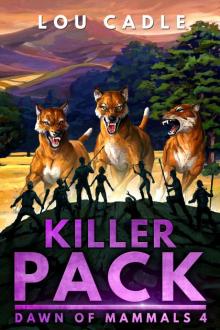 Killer Pack (Dawn of Mammals Book 4)
Killer Pack (Dawn of Mammals Book 4)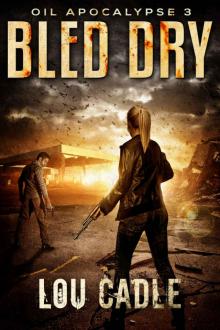 Bled Dry
Bled Dry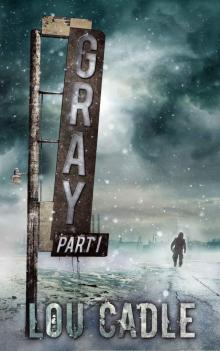 Gray (Book 1)
Gray (Book 1) Dawn of Mammals (Book 4): Killer Pack
Dawn of Mammals (Book 4): Killer Pack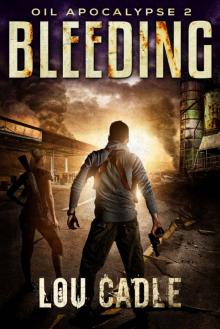 Bleeding (Oil Apocalypse Book 2)
Bleeding (Oil Apocalypse Book 2)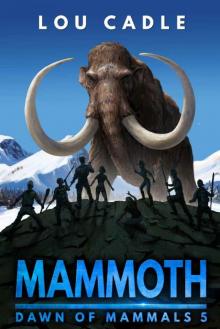 Dawn of Mammals (Book 5): Mammoth
Dawn of Mammals (Book 5): Mammoth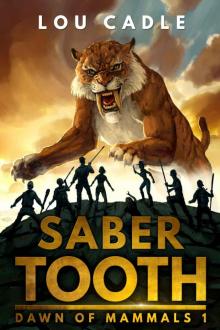 Saber Tooth (Dawn of Mammals Book 1)
Saber Tooth (Dawn of Mammals Book 1)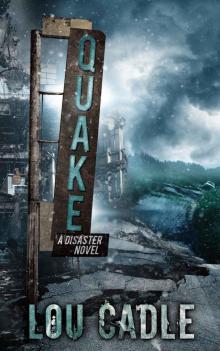 Natural Disaster (Book 2): Quake
Natural Disaster (Book 2): Quake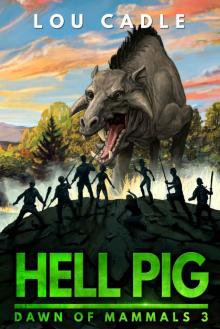 Hell Pig (Dawn of Mammals Book 3)
Hell Pig (Dawn of Mammals Book 3)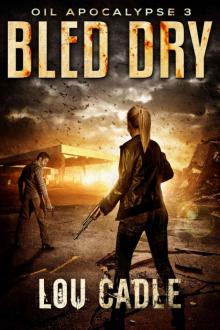 Bled Dry (Oil Apocalypse Book 3)
Bled Dry (Oil Apocalypse Book 3)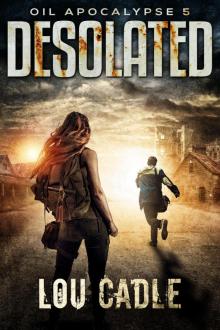 Desolated
Desolated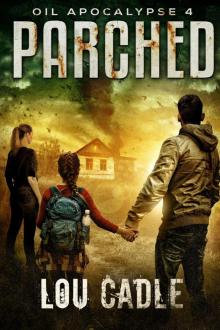 Parched
Parched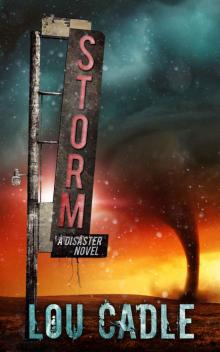 Natural Disaster (Book 3): Storm
Natural Disaster (Book 3): Storm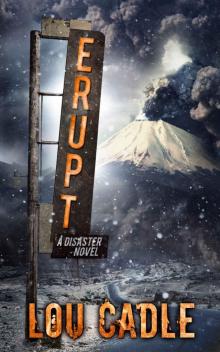 Natural Disaster (Book 1): Erupt
Natural Disaster (Book 1): Erupt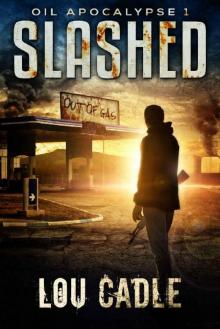 Slashed (Oil Apocalypse Book 1)
Slashed (Oil Apocalypse Book 1)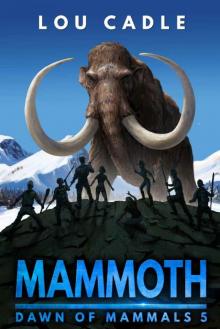 Mammoth (Dawn of Mammals Book 5)
Mammoth (Dawn of Mammals Book 5)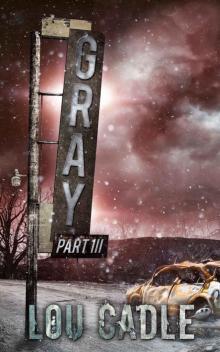 Gray (Book 3)
Gray (Book 3)